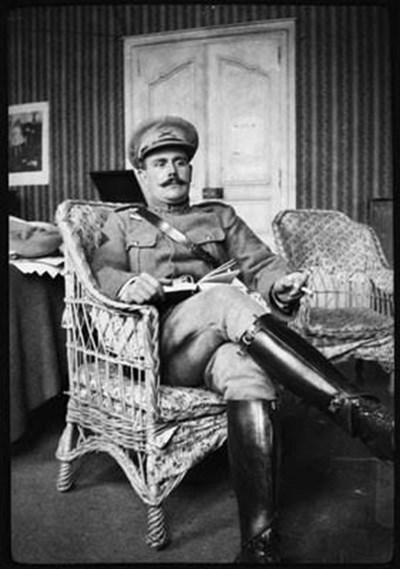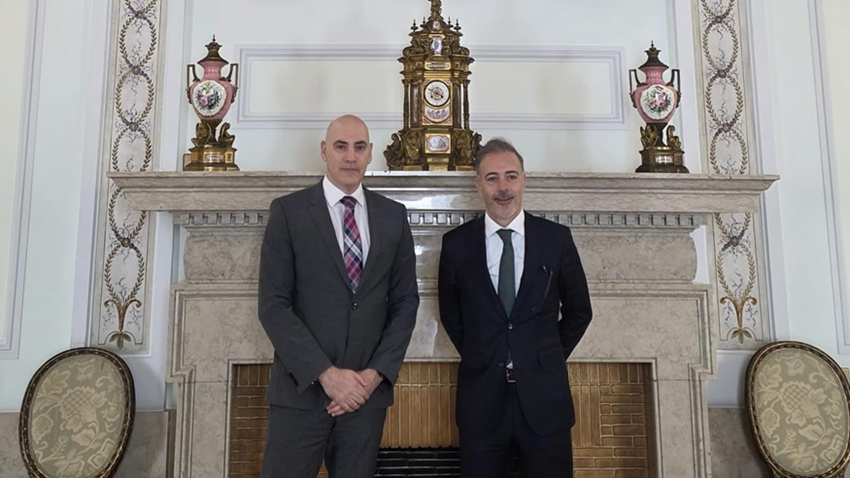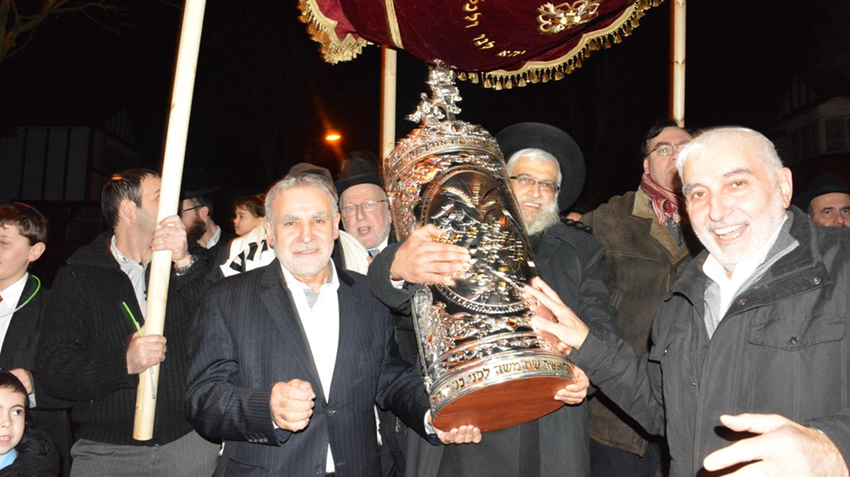
In the year of the centenary of the Jewish Community of Oporto (1923-2023), the organisation has decided to compel the State to posthumously reintegrate its founder into the army. Arthur Carlos Barros Basto was a Portuguese Army officer who was declared “immoral” in June 1937 for participating in circumcision operations, and who before he died said, “One day, I will get justice”.
“Enough is enough! Now, the State claims that my grandfather should be alive, aged 136, and himself request his posthumous reintegration”, states his granddaughter, Isabel Barros, who is Vice-President of the Jewish Community of Oporto, founded by Barros Basto, who has continued her mother’s and grandmother’s efforts to get their loved one reintegrated into the Army.
For decades, Captain Barros Basto’s closest relatives voiced their indignation at the injustice against him, but it was only in 2012 that the Assembly of the Republic considered that he had been the target of political and religious persecution and advised the State to reintegrate him into the Army. The following year, the Army itself officially declared that the late officer could be posthumously reintegrated as colonel, the rank he would have reached on 2 November 1945 had he not been expelled.
“Nevertheless, despite these decisions by Parliament and the Army, which are already ten years old, I have yet to receive any document stating my grandfather’s official reintegration into the Army, which has been postponed sine die by the State, despite the fact that over the years the Jewish Community of Oporto and the Anti-Defamation League have written many times to the Government and to the President of the Portuguese Republic” – says Isabel Barros Lopes.
David Garrett, the member of the board of the Jewish Community of Oporto in charge of legal affairs, explains that “at present the problem is not the Army, but the State, which tries to deny the descendants’ legitimacy to apply for the posthumous reintegration of this officer, as if he were immortal. If we do not receive an answer within the next few weeks we will lodge a complaint with the Portuguese Administrative Court, and if necessary later to the European Court of Human Rights”.
To make the State’s attitude even more incomprehensible, in 2018 Parliament published a law aimed at reintegrating, de facto or posthumously, into the Army, all military who had been wronged during the time of the dictatorship. Isabel Barros says that “the Left Bloc (Bloco de Esquerda), the party responsible for this legal initiative, wrote to me to say that at long last my grandfather would be reintegrated and that Barros Basto was a paradigmatic case of the objectives of said law. The State now wants to deny the legislator’s intention, requiring that my grandfather be alive”.
The case against Barros Basto
The case against Barros Basto arose when he was the target of anonymous letters sent to the Portuguese authorities falsely accusing him of homosexuality. The police very soon discovered and declared such accusations to be false, but the State took advantage of this fact. Isabel Barros Lopes accuses “shameless political agents of the State who seized on the existence of these anonymous letters to bring an unjust case against my grandfather. Owing to the lack of evidence, he was separated from the service for having participated in the circumcision of young students”.
Having been expelled from the Portuguese Army, Barros Basto spent the end of his life filled with bitterness and sadness. His daughter Miriam recalls that “When he came home, he would sit and bury his face in his knees, asking what he had done to deserve such a sad ending”. He never lost hope in getting his name cleared and returning to his beloved military service. “Before he died he was still saying: ‘One day, I will get justice’”, said Miriam.
A film about Barros Basto
The Jewish Community of Oporto recently financed the filming and production of a feature film entitled SEFARAD, which tells the story of Captain Barros Basto, who has been called “the Portuguese Dreyfus” and which can be viewed on Vimeo.
History of Captain
Captain Barros Basto converted to Judaism in 1920 and together with about thirty Jews from central and eastern Europe officially founded a Jewish community which was organised in Oporto more than four centuries after the Jews were expelled from Portugal.
Between 1927 and 1934, Basto tried to rescue the official Judaism of hundreds of Marranos (Bnei anussim) who lived in Portugal. The Marranos were descended from the “new Christians”, who had been victims of the edict of the Portuguese King D. Manuel I and of the Inquisition, and who practiced a very particular form of religion involving Jewish and Catholic rites. “To help them return to Judaism, my grandfather opened a Jewish school, created a newspaper and asked Sephardic Jews around the world to pay for the construction of a large synagogue in Oporto – today still considered the largest synagogue on the Iberian Peninsula”, says Isabel Barros.
The Marranos rescue plan was not successful. According to Arnold Diesendruck, a Jewish writer who lived for decades in Portugal and wrote the book “Marranos in Portugal – 1920-1950”, “the Marranos wished to remain outside the dominant Jewish mainstream, and their ancient beliefs were strongly affected by 500 years of Christianity and the absence of links with traditional Judaism, however liberal. This was not acceptable to Judaism”.
In addition to the Marranos’ lack of interest in official Judaism, something more serious occurred between 1934 and 1936. As a result of slanderous anonymous denunciations, Barros Basto was expelled from the Army and the Community lost its charismatic leader.
Barros Basto and his granddaughter: both were targets of anonymous denunciations by the scum of society.
The granddaughter of Basto, Isabel, says that “My grandfather was always a great driving force behind the religious and cultural development of the Community. This vile case was intended to break him and destroy Jewish life and culture in Oporto, which the antisemites actually achieved over a period of seventy-five years. It was only in the last decade that Jewish life and Jewish culture in Oporto have been rehabilitated. That is why. in 2022 I myself was the victim of anonymous slanderous denunciations which agents of the State once again seized on to invade the synagogue, the museum and even my own home, repeating the dark history of my grandfather”.
The Jewish Community of Oporto today
Today, the Jewish Community of Oporto comprises about one thousand people from thirty countries. It has three synagogues, a Holocaust Museum, a Jewish Museum and kosher restaurants. In this year of 2023, the Community will inaugurate its own cemetery. The last one was destroyed in 1497 at the time of the Edict of King D. Manuel forbidding Judaism in Portugal.

































